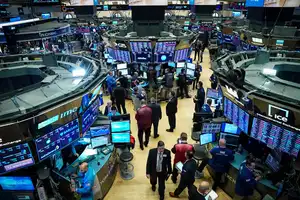Trading derivatives, including futures contracts, differs significantly from trading securities that involve physical possession of assets. In most cases, futures traders do not take possession of the underlying asset; instead, they either close their positions before the exercise date or settle the contract for cash.
While some may view this as a disadvantage compared to owning assets, the fact that futures trades exist on paper serves an essential purpose. It significantly increases market liquidity, as paper trades have unlimited supply from a fundamental standpoint, unrestrained by physical considerations like asset supply.
This unlimited liquidity leads to a more efficient market, where the notional value of futures contracts can far exceed the actual supply of the asset without affecting trading. This unrestricted efficiency allows for easy entry and exit in the market at favorable pricing, making futures trading appealing to many investors.
In contrast to markets dealing with physical assets, futures trading operates primarily on pure demand, as there are no limitations on the size of the futures market. This unrestricted demand, along with the influence of the spot or cash market, contributes to the high liquidity and attractiveness of futures trading, making it a popular choice for speculators and hedgers alike.
Futures Markets aren’t So Tightly Regulated
The battle between futures markets and regulators has been a historical one, with regulators often viewing paper trading as more akin to gambling than true investing. However, over time, the futures markets have prevailed, leading to a regulatory environment that seeks to promote a free market while also protecting participants.
Futures exchanges take a less conservative view of the markets compared to stock or bond markets, advocating for trading freedom. There is no bias towards the long side as seen in stock markets, where the goal is often assumed to be promoting price increases and avoiding price decreases. In futures markets, both long and short positions are equally necessary, and traders can easily take positions on either side.

Unlike betting against the price of an actual security, where one may need to borrow the asset to sell it later, futures trading allows for immediate and efficient short positions, with no inherent restrictions. The exchanges’ role is to promote orderly trading and ensure proper settlement of trades, making futures trading a regulated but efficient and flexible market for investors.
Futures Trading Offers Much More Leverage
When buying an asset on margin, a portion of the purchase cost is paid as margin, and the rest is borrowed. However, futures trading works differently. In futures trading, no assets are bought or sold immediately. Traders only put up a deposit to open a position, and there is no borrowing involved since the actual transaction has not occurred yet.
This method of leveraging in futures trading is more efficient compared to buying on margin. Futures positions are settled daily, allowing traders to realize their profits and losses on a daily basis, instead of waiting until the position is closed. The margin requirements for futures trading are also generally lower than buying stocks on margin, providing traders with more favorable leverage options.
Stock markets tend to be more heavily regulated, imposing restrictions on leverage to protect traders. However, these restrictions may not always be suitable for shorter-term traders, as the risks associated with longer-term investing are not directly applicable to their trading strategies.
In futures trading, while there are still restrictions on leverage, they are generally more favorable and accommodating to traders. This allows skilled traders with a strong advantage to amplify their returns, while also allowing traders to manage their own risks according to their individual styles and preferences.
While leverage does present the potential for higher returns, it also means that traders who mismanage their accounts could experience amplified losses. However, it is generally believed that traders should have the freedom to decide how much leverage they wish to use, allowing them to choose their own risks and trading strategies without unnecessary regulatory interference.
Some Additional Benefits of Futures Trading
The futures market offers a range of trading options, but its relatively limited scope can be advantageous for traders. Instead of having to choose from a vast array of stocks, traders can focus on trading an index like the S&P 500, which allows them to become intimately familiar with the market. This specialization can lead to better-informed trading decisions.
Moreover, indexes in the futures market are open nearly 24 hours a day, five days a week, which reduces the risk of overnight gaps. In other words, traders can set stop loss orders with more confidence, knowing that sudden market gaps are less likely to occur during continuous trading hours.
It’s important to note that futures trading is not meant for long-term investors looking for sustained upward trends. Futures contracts are short-term in nature, typically lasting for only a few months. However, for skilled traders, the futures market offers unique opportunities and potential for impressive returns.
Managing risk is crucial in futures trading, as with any form of trading. While risk can be managed to a certain extent, it may not offer the same flexibility as contracts for difference (CFD) trading, primarily due to higher minimum trade sizes in futures. Nonetheless, for traders with the necessary skillset and capital, the futures market can be a rewarding arena to achieve substantial profits.




